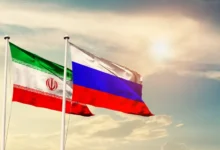
Who actually sets the Israeli government's agenda?
By: Dr.. Dr. Muhammad Makram al-Balaawi
Israeli forces killed at least 35 Palestinians, including three children, in the occupied West Bank in January alone. A number of the killings were documented on video, and at least one was killed for no reason at all, just because he was a Palestinian. The Israeli army acknowledged the crime, admitting that its soldiers killed a father of five children, Ahmad Hassan Kahleh, 45, at a military checkpoint, despite the fact that he was a threat. Unusually, the Israeli military acknowledged the crime, admitting that its soldiers killed a 45-year-old father of five, Ahmad Hassan Kahleh, at a military checkpoint, even though he had never posed a threat. His son, Qusai, was with him in their car on their way to work at a construction site; he witnessed his father being severely beaten by Israeli soldiers before two bullets were fired into his neck at close range.
In another scene, 25 years ago, Khairi Alqam was returning home when an Israeli settler stabbed him to death on a Jerusalem street; last night, his 21-year-old grandson Khairi Alqam killed seven Israeli settlers in occupied Jerusalem, just one day after ten Palestinians were killed by Israeli occupation forces in Jenin. Was this just a coincidence? Israelis should know better.
Today, there are plenty of reasons to demonstrate against Benjamin Netanyahu's far-right government, not least because it cannot fulfill its promise to bring more security to Israel. On the contrary, the more violence it inflicts on the Palestinians leads to even more violent reactions, with more killings on both sides. The so-called peace process is dead and buried, and will not be revived in the latest iteration of Netanyahu's take-everything-and-give-nothing agenda.
Netanyahu made a surprise visit to Amman last Tuesday, meeting with Jordan's King Abdullah II in his first foreign visit since his return as prime minister. He had planned to go to the United Arab Emirates on his first trip, but the visit was canceled after far-right National Security Minister Itamar Ben-Gvir made a provocative incursion into the Al-Aqsa Mosque.
Regarding the outcome of the meeting between Jordan and the Zionist entity, the Jordanian Royal Court issued a statement: "His Majesty the King emphasized Jordan's firm support for the two-state solution, which guarantees the establishment of an independent Palestinian state on the 1967 borders, with East Jerusalem as its capital, living side by side with Israel in peace, security and protection." He also explained the need to maintain calm and end all forms of violence in Jerusalem, while Netanyahu pledged to maintain the status quo at the Al-Aqsa Mosque.
The Prime Minister's Office in Israel issued a brief four-line statement that seems to indicate something quite different, stating that the two leaders discussed regional issues, especially strategic, security and economic cooperation between Israel and Jordan, which contributes to regional stability, and praised the long-standing friendship and partnership between Israel and the Hashemite Kingdom.
Obviously, the recent statement did not mention the Al-Aqsa Mosque or the current situation, nor did it mention anything about the peace process or the Palestinians, let alone a two-state solution, but merely praised the "long-standing friendship and partnership."
While the statement from Amman reflects Jordanian concerns about the loss of custodianship of the holy sites in Jerusalem and the desire to end the conflict between Israelis and Palestinians on the basis of a two-state solution, the Israeli government seems to have little interest in such issues and is clearly aiming to convince everyone in Israel and abroad that they have nothing to worry about when it comes to Israel's relations with Arab countries.
However, Israeli media came closer to the Jordanian narrative. Hebrew TV channel Kan 11 reported Jordanian and Israeli concerns about an increase in violence in the West Bank during Ramadan, in late March. The Tel Aviv University think tank Ines also used its annual strategic report to propose a committee made up of Israelis, Jordanians and the Palestinian Authority to contain expected clashes during the holy month, which coincides with the Jewish holiday of Passover, as Israeli settlers have made it a habit in recent years to storm the Al-Aqsa Mosque during Ramadan.
The media highlighted the role of H.H. Sheikh Mohammed bin Zayed Al Nahyan in arranging the meeting between King Abdullah and Netanyahu. The goal was to bridge the gap between them before US Secretary of State Antony Blinken's visit to the Middle East. As we have seen with other US officials who have visited Israel recently, Blinken does not seem very happy with the current Israeli government and its plans.
A delegation of 35 European diplomats visited the Al-Aqsa Mosque on January 1, after the Israeli occupation police detained the Jordanian ambassador to Israel, Ghassan Majali, at the entrance to the compound. The diplomats' move is understood as a sign of support for Jordan's custodianship of the holy sites in occupied Jerusalem.
The day after Netanyahu's visit to Amman, Ben-Ghafir vowed to continue storming the Al-Aqsa Mosque, telling a local media outlet that he did not know what was discussed at the Amman meeting and that he was running his own policy "not that of the Jordanian government."
Before leaving office, former Prime Minister Yair Lapid warned the Israeli public: "Beware of a dangerous, extremist and irresponsible government led by a weak prime minister who lost control even before he was sworn in."
So, who actually sets the agenda for the Israeli government: Netanyahu or Ben-Gvir? And if Ben-Gvir is able to transform Israel's foreign policy, influence key foreign support, restore relations with the Palestinian Authority, challenge the status quo at the Al-Aqsa Mosque, and set Israeli security priorities, what power does Netanyahu have left to exercise?








